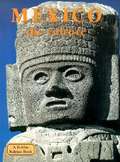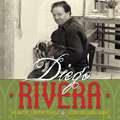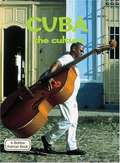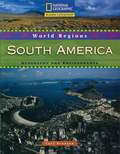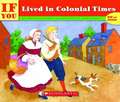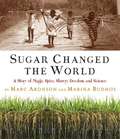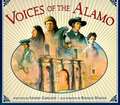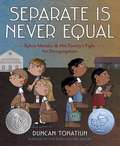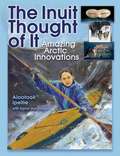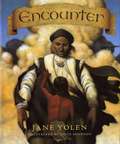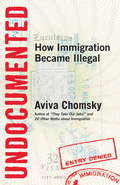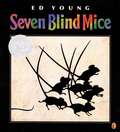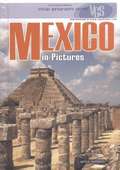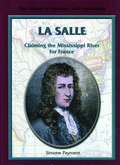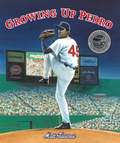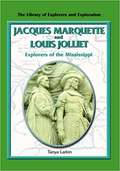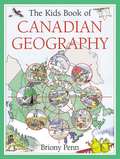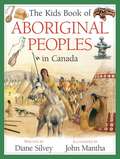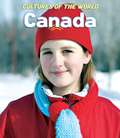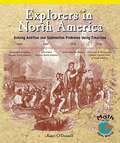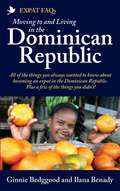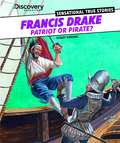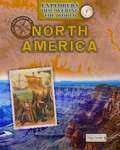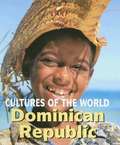Special Collections
District List: NYC Core Curriculum 5th - Social Studies
Description: The New York City Core Curriculum program aims to provide a high-quality curricula to NYC students through a seamless instructional program across grades and subjects. This list has been curated by #NYCDOE for 5th Grade Social Studies materials.
- Table View
- List View
Mexico the Culture
by Bobbie KalmanThis book explores Mexican culture, including the Mayan, Aztec, and Spanish influences, and covers arts and crafts, music, dance, literature, folklore, holidays, sports, and food.
Diego Rivera
by Susan Goldman RubinDiego Rivera offers young readers unique insight into the life and artwork of the famous Mexican painter and muralist. The book follows Rivera’s career, looking at his influences and tracing the evolution of his style.
His work often called attention to the culture and struggles of the Mexican working class. Believing that art should be for the people, he created public murals in both the United States and Mexico, examples of which are included.
The book contains a list of museums where you can see Rivera’s art, a historical note, a glossary, and a bibliography.
Cuba
by Susan Hughes and April FastDiscusses the religion, festivals, music, art, architecture, language, and literature of Cuba, and includes a Cuban folk tale.
National Geographic Reading Expeditions World Regions
by Carl ProujanTake a look at the dramatically different environments in South America, the towering Andes, the grasslands, the Amazon rain forest, and the varied coastal areas. Examine how elevation and latitude affect the land and its vegetation and wildlife.
...If You Lived in Colonial Times
by Ann McgovernThe author answers many intriguing questions that children are likely to ask. "What did colonial boys and girls wear?" "What happened if they didn't behave in school?" "What did they do on Sunday?" "Were there special laws about fun? "What happened to people who broke the laws?" This book provides a unique opportunity to enrich the young reader's understanding of American history. 52 entertaining questions and answers about what it was like to live in the New England colonies during the years 1650 - 1730.
Sugar Changed the World
by Marc Aronson and Marina Tamar BudhosChronicles the human pursuit of sugar to satisfy our collective sweet tooth. The book describes this history in terms of ages, beginning with the Age of Honey, built on local growth and consumption of comestibles; through the Age of Sugar and its slave-supported "factory" plantation method of production; and into a period of science and freedom, when enslaved workers claimed their human rights and production of sweeteners shifted from the field to the lab.
Voices of the Alamo
by Sherry GarlandFrom the 1500s to the present, different voices and perspectives of men and women--Indian, Mexican, Spanish, Texan, and American--recount the history of the Alamo and its region.
Separate Is Never Equal
by Duncan Tonatiuh
Almost 10 years before Brown vs. Board of Education, Sylvia Mendez and her parents helped end school segregation in California.
An American citizen of Mexican and Puerto Rican heritage who spoke and wrote perfect English, Mendez was denied enrollment to a "Whites only" school.
Her parents took action by organizing the Hispanic community and filing a lawsuit in federal district court.
Their success eventually brought an end to the era of segregated education in California.
2015 Jane Addams Younger Reader Award,
2015 Pura Belpré Illustrator Honor Book
2015 Robert F. Sibert Honor Book
The Inuit Thought Of It
by David Macdonald and Alootook IpellieToday’s Arctic communities have all the comforts of modern living. Yet the Inuit survived in this harsh landscape for hundreds of years with nothing but the land and their own ingenuity. Join authors Alootook Ipellie and David MacDonald as they explore the amazing innovations of traditional Inuit and how their ideas continue to echo around the world. Some inventions are still familiar to us: the one-person watercraft known as a kayak still retains its Inuit name. Other innovations have been replaced by modern technology: slitted snow goggles protected Inuit eyes long before sunglasses arrived on the scene. Andother ideas were surprisingly inspired: using human-shaped stone stacks (Inunnguat) to trick and trap caribou. Many more Inuit innovations are explored here, including: * Dog sleds * Shelter * Clothing * Kids’ stuff * Food preservation * Medicine. In all, more than 40 Inuit items and ideas are showcased through dramatic photos and captivating language. From how these objects were made, to their impact on contemporary culture, The Inuit Thought of It is a remarkable catalogue of Inuit invention.
Encounter
by Jane YolenWhen Christopher Columbus landed on the island of San Salvador in 1492, what he discovered were the Taino Indians. Told from a young Taino boy's point of view, this is a story of how the boy tried to warn his people against welcoming the strangers, who seemed more interested in golden ornaments than friendship. Years later the boy, now an old man, looks back at the destruction of his people and their culture by the colonizers.
Undocumented
by Aviva ChomskyExplores what it means to be undocumented in a legal, social, economic and historical context In this illuminating work, immigrant rights activist Aviva Chomsky shows how "illegality" and "undocumentedness" are concepts that were created to exclude and exploit. With a focus on US policy, she probes how people, especially Mexican and Central Americans, have been assigned this status--and to what ends. Blending history with human drama, Chomsky explores what it means to be undocumented in a legal, social, economic, and historical context. The result is a powerful testament of the complex, contradictory, and ever-shifting nature of status in America.From the Trade Paperback edition.
Seven Blind Mice
by Ed YoungA Caldecott Honor Book. "It's a pillar," says Red Mouse. "It's a fan!" cries Orange Mouse. "No, it's a spear," says Yellow Mouse. But as the seven blind mice go out one by one to investigate the strange Something by the pond, each comes back with a different idea of what it is. Argue as they might, they cannot agree. Only when the last mouse ventures out and investigates do they finally learn for certain what the strange Something is, and what the whole truth is as well! Caldecott medalist Ed Young's paper-collage illustrations joyously capture the wit and humor of this tale based on the ancient fable of the Blind Men and the Elephant. The very youngest readers will delight in Young's brightly colored mice who will lead them to discoveries of color, the days of the week, and one of the truest paths to wisdom.
Mexico In Pictures
by Janice HamiltonThe new, completely revised and redesigned 2nd edition of the highly acclaimed Visual Geography Series reveals the history and government, economy, people, geography, and cultural life of countries from around the world. With comprehensive text, beautiful, crisp photography, intriguing sidebars, and up-to-date resources including downloadable photos and maps at www.vgsbooks.com, these colorful editions take a look at how key events helped to shape various nations. Perfect for reports, finding fast facts, and geography buffs, the Visual Geography Series takes readers on a fascinating trip around the world (passport not included). Supports the national curriculum standards Culture; Time, Continuity, and Change; People, Places, and Environments; Individual Development and Identity; Individuals, Groups, and Institutions; Power, Authority, and Governance; Production, Distribution, and Consumption; Science Technology and Society; and Global Connections as outlined by the National Council for the Social Studies.
La Salle
by Simone PaymentRene-Robert Cavalier, Sieur de La Salle devoted his life to the discovery and exploration of the Mississippi River. He believed that the great river would provide him with an easier route to China, where he could find valuable silks and spices. His revised goal was to create a French empire in North America that would stretch from Canada to the Gulf of Mexico. This book follows La Salle on his tireless expeditions and teaches readers the value of persistence even when no one else believes in the cause.
Growing Up Pedro
by Matt TavaresThe love between brothers is key to Matt Tavares's tale of Dominican pitcher Pedro Martinez, from his days of throwing rocks at mangoes to his years as a major-league star.
Before Pedro MartInez pitched the Red Sox to a World Series championship, before he was named to the All-Star team eight times, before he won the Cy Young three times, he was a kid from a place called Manoguayabo in the Dominican Republic. Pedro loved baseball more than anything, and his older brother Ramon was the best pitcher he'd ever seen. He'd dream of the day he and his brother could play together in the major leagues--and here, Matt Tavares tells the story of how that dream came true. In a fitting homage to a modern day baseball star, the acclaimed author-illustrator examines both Pedro Martinez's improbable rise to the top of his game and the power that comes from the deep bond between brothers.
Jacques Marquette and Louis Jolliet
by Tanya LarkinA biography of the French explorers whose primary goal was to find the Northwest Passage, but who made their mark on history by exploring and charting the Mississippi River.
The Inuit
by Rachel A. Koestler-GrackDiscusses the Inuit Indians, focusing on their tradition of carving ivory. Includes a recipe for a blueberry-topped snowcream, and instructions for carving soap animals and for playing an Inuit game.
The Kids Book Of Canadian Geography
by Briony PennThis installment in the critically acclaimed and bestselling Kids Book of... series is a landmark event in Canadian publishing. The Kids Book of Canadian Geography, the only trade book of its kind, is an indispensable resource.
Writer and illustrator Briony Penn takes a fresh approach by showing how Canada's landscape, life forms, ecosystems and climate yield clues to help youngsters understand the ever-changing story of geography.
What does a huge rock in the middle of a plain tell us? What makes spruce trees adapted to the north? What does the star-nosed mole tell us about woodlands? These and many other clues are explained to help youngsters ?decode? and understand their environments. This book traces the continents' formation and explains how they arrived at their present state, touching on ancient landscapes, evolving climate, continent shaping and life on the land, including human settlement. Then, kids get a richly detailed and illustrated tour through the eight geographical regions of their country.
The Kids Book Of Aboriginal Peoples In Canada
by John Mantha and Diane SilveyCanada's Aboriginal peoples have shaped this country in countless ways. Their story is central to the nation's identity --- indeed, the word ?Canada? is derived from the Huron-Haudenosaunee word ?kanata,? which means ?our village.? This title in the acclaimed Kids Book of series is a balanced, in-depth look at the cultures, struggles and triumphs of Canada's first peoples.
Exhaustively researched and reviewed by specialists in the field, this groundbreaking book is by far the most comprehensive of its kind. The detailed illustrations based on museum artifacts, written records of long ago and contemporary scholarship help bring the traditional ways to life for young readers.
Canada
by Guek Cheng Pang and Jo-Ann SpillingThe highly regarded Cultures of the World series celebrates the diversity of other cultures in this fully updated and expanded edition. As has always been true of these outstanding titles, an abundance of vibrant photographs-including those new to this edition-stimulate the imaginations of young readers as they travel the globe.
Explorers in North America
by Kerri O'DonnellThis book introduces basic addition and subtraction problems through the chronological overview of exploration in North America. Includes artifacts such as an excerpt from Champlain's book about his voyage, in addition to an early map of New Amsterdam.
Expat FAQs
by Ilana Benady and Ginnie BedggoodAll of the things you always wanted to know about becoming an expat in the Dominican Republic. Plus a few of the things you didn't! WHEN you embark on a move to a foreign country you have heaps of questions to ask, but it can be hard to know where to turn. When that country is way out in the middle of the Caribbean and the local language is Spanish, those questions can really keep you awake at night. Questions about schools, shops, doctors, housing and, of course, which place is really the place to be. In this comprehensive yet wholly accessible and practical guide, authors Ginnie Bedggood and Ilana Benady, provide all the answers you need. Divided simply into sections entitled Why, Where, What, Who and How and crammed with names, addresses and telephone numbers, this book is without doubt the one-stop resource you need.
Francis Drake
by Robert SheehanFrancis Drake was a man some considered a hero, while others thought he was nothing more than a criminal. Readers will decide for themselves in this fact-filled volume. Easy-to-follow text and colorful illustrations will keep any young readers interest.
The Exploration of North America
by Tim CookeReaders navigate this fact-filled book as it takes them through the history of North American discovery and exploration, detailing all of the successes, hardships, dangers, and accomplishments of key figures in exploration history. From the mighty Mississippi to the Rockies, up to Canada and down to Mexico, readers will learn about Columbus, Lewis and Clark, Smith, and many more. Fascinating fact boxes enhance the historical and informative content, while supporting captions and sidebars provide interesting facts about explorers and their voyages. Eye-catching and authentic illustrations give readers a feel for the period, transporting them back in time to the golden age of North American exploration.
Dominican Republic
by Leslie Jermyn and Erin FoleyExplores the geography, history, government, economy, people, and culture of the Dominican Republic.
